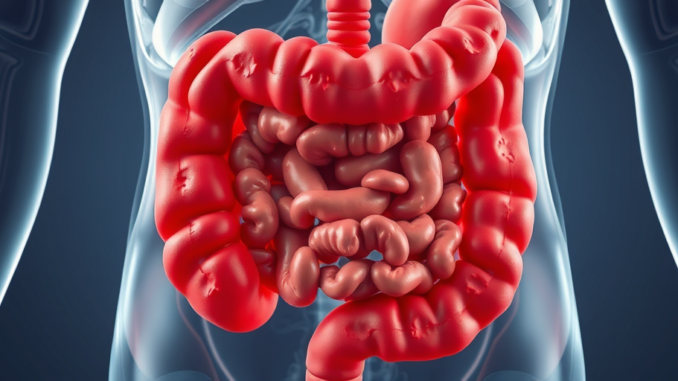
Summary
This article explores the groundbreaking discovery of how Batten disease, a fatal neurodegenerative disease affecting children, also impacts the bowel. Researchers have found that the disease causes degeneration of enteric neurons in the gut, mirroring the neurodegeneration in the brain and spinal cord. Promisingly, gene therapy targeted at the bowel has shown to alleviate symptoms and extend lifespan in mouse models, offering hope for new treatment approaches.
Secure patient data with ease. See how TrueNAS offers self-healing data protection.
Main Story
It’s a parent’s worst nightmare, a diagnosis like Batten disease. This group of rare, inherited disorders hits the nervous system hard. You’re looking at a progressive breakdown of nerve cells. Think vision loss, seizures, cognitive decline—it’s ultimately fatal. For years, research has focused mainly on the neurological impact, and rightfully so. But, a new development is changing the way we think about this terrible disease.
Recently, studies have uncovered a really interesting, and frankly, surprising link, between Batten disease and the gastrointestinal system. It makes you wonder, doesn’t it? Researchers at Washington University School of Medicine in St. Louis, driven by the heartbreaking accounts from parents whose kids had severe digestive issues, alongside the neurological stuff. They went looking for answers. Their findings published in Science Translational Medicine were eye-opening, they revealed a startling parallel. The brain’s neurodegeneration was mirrored by a similar process going on in the bowel.
Batten disease, or neuronal ceroid lipofuscinosis (NCL) as it’s also known, is basically due to a deficiency. Specific enzymes that usually break down and recycle cellular waste, just don’t do their job. This causes fatty substances called lipofuscins to build up in cells which disrupts normal function, leading to cell death. It’s been long understood this happens in the brain. What’s new, is that researchers discovered this process also happens in the enteric nervous system. That’s the complex network of neurons inside the walls of your gastrointestinal tract.
This ‘second brain’ as they call it, the enteric nervous system, is essential. It regulates everything from motility to secretion and absorption in the gut. Now, here’s the kicker. The study found that Batten disease causes the enteric neurons to degenerate, just like in the brain, or spinal cord. This leads to a range of nasty gastrointestinal problems including severe constipation. It’s one of the most common and distressing symptoms parents of these kids have reported; something my sister-in-law mentioned when we spoke recently about her nephew.
And what does this all mean? Well, the parallel between the neurological and gastrointestinal effects is significant. It points to similar cellular mechanisms that drive the disease in the central and enteric nervous systems. As a result, it gives us a new way of exploring potential treatments. While a cure remains elusive, the team at Washington University did make a very promising discovery, that is, they found that gene therapy targeted at the bowel effectively slowed the degeneration of enteric neurons. Think reduced gastrointestinal symptoms, and even, get this, an extended lifespan in mice with Batten disease!
This breakthrough opens up the possibility of developing similar gene therapies for humans. Imagine, a new way of managing the disease and giving these kids a better quality of life. This research really is a game-changer in how we think about Batten disease and its effects. It emphasizes the importance of a broader view of neurodegenerative disorders. Gene therapy for mouse models, well, that’s a real beacon of hope. That said, a lot more research is needed, but with a better understanding of the gut-brain connection we’re much closer to finding novel therapies that can ease suffering and maybe, just maybe, extend the lives of children. So, that’s something to keep an eye on, I’d say.


So, the gut has its own “brain” now, and it throws a tantrum in tandem with the real brain? Is this why my stomach rumbles dramatically during stressful meetings, or is it just trying to steal the spotlight?
That’s a great way to put it! It’s fascinating how interconnected our systems are. The enteric nervous system does indeed act like a ‘second brain’, and the research suggests that stress responses can manifest in the gut, just as you describe. It would be interesting to explore that link further!
Editor: MedTechNews.Uk
Thank you to our Sponsor Esdebe – https://esdebe.com
So, now the *bowel* gets its own gene therapy party while the brain, you know, the *actual* control centre, just has to wait? How democratic.
That’s a very insightful way to look at it! It’s definitely interesting how research is branching out and finding that treatments targeting the ‘second brain’ can have significant impact, hopefully we’ll see this approach lead to breakthroughs for all aspects of the disease soon.
Editor: MedTechNews.Uk
Thank you to our Sponsor Esdebe – https://esdebe.com
So, the gut’s been getting away with this ‘second brain’ act all along? Guess we should’ve been listening to those tummy rumbles more seriously.
That’s a great point! It really does make you wonder what other insights we could gain by paying more attention to those subtle bodily signals. Perhaps our gut’s rumblings are more eloquent than we’ve given them credit for! It’s interesting how interconnected everything is.
Editor: MedTechNews.Uk
Thank you to our Sponsor Esdebe – https://esdebe.com